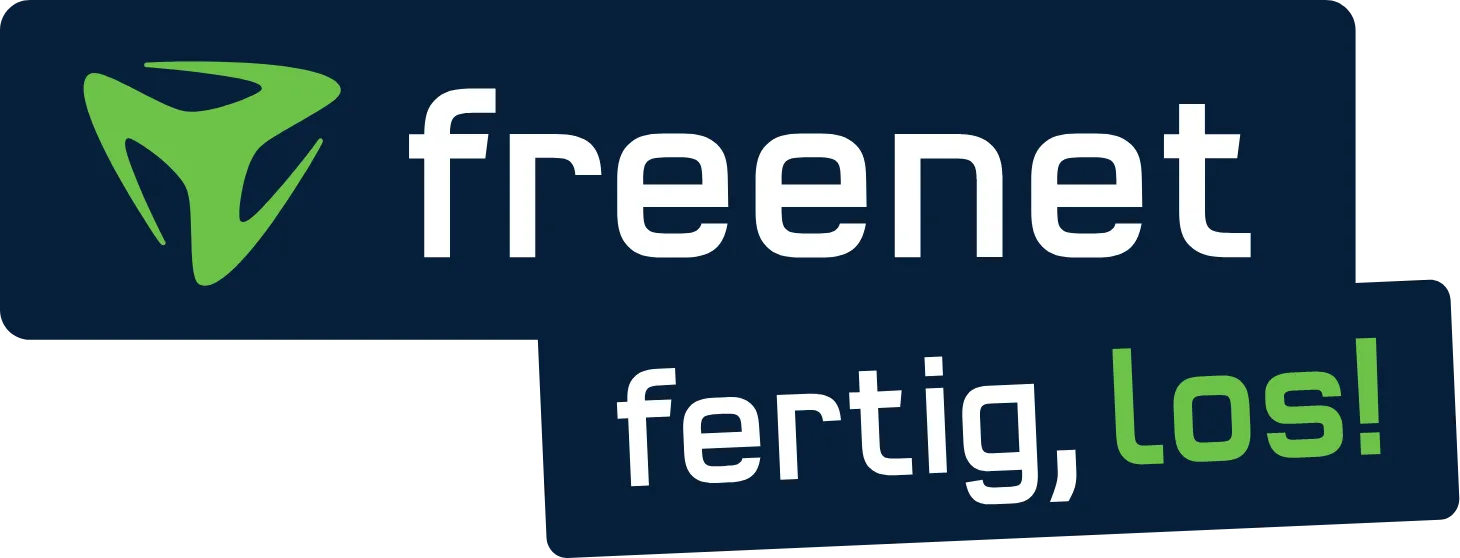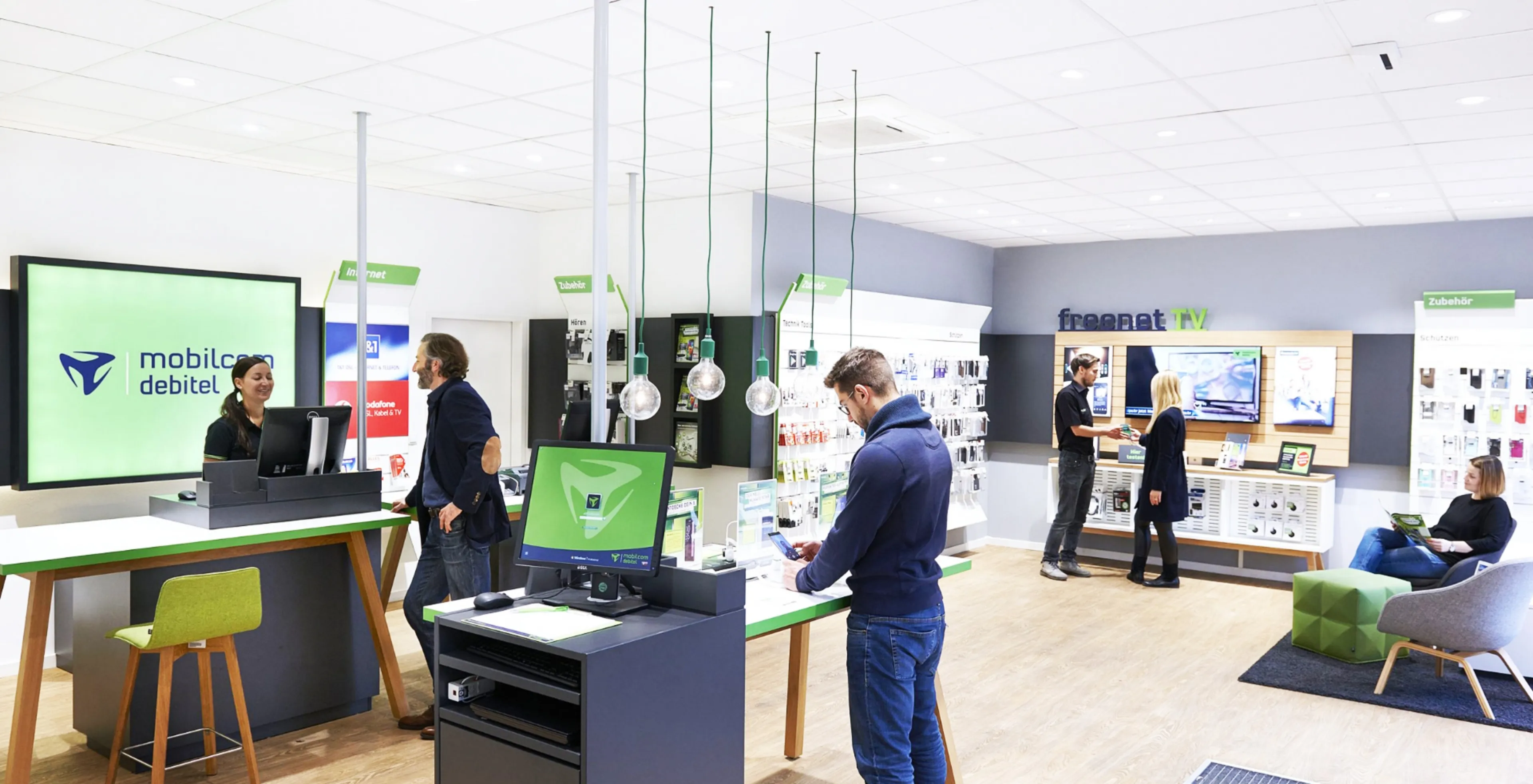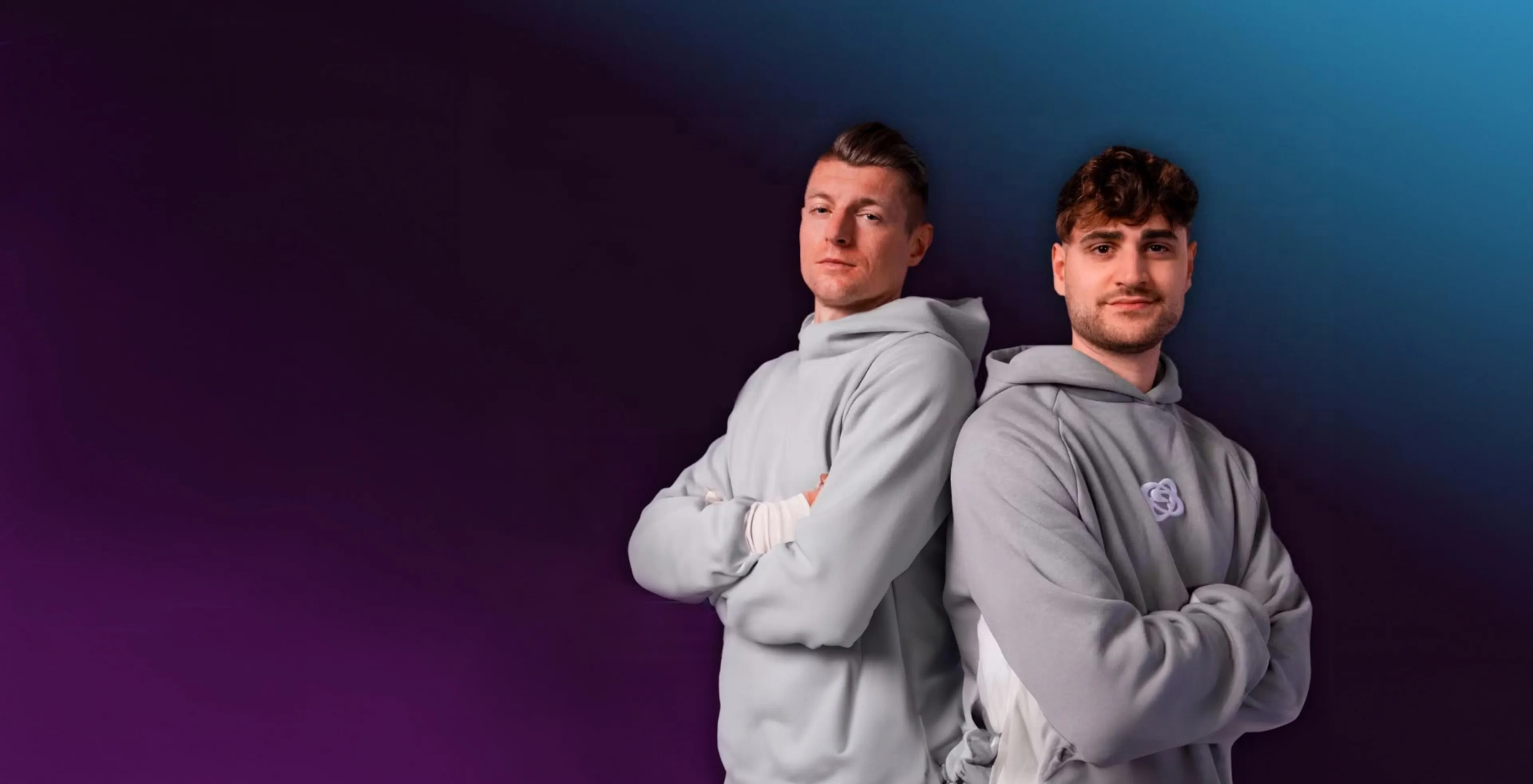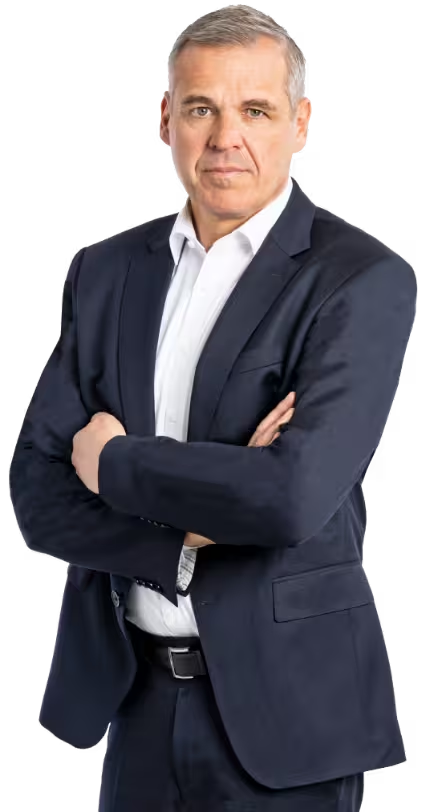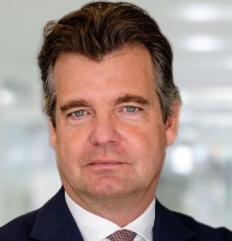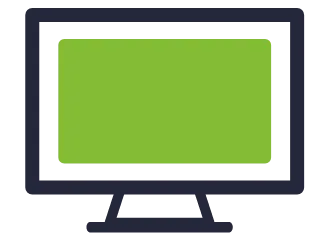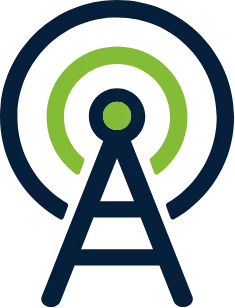 Interview
Interview
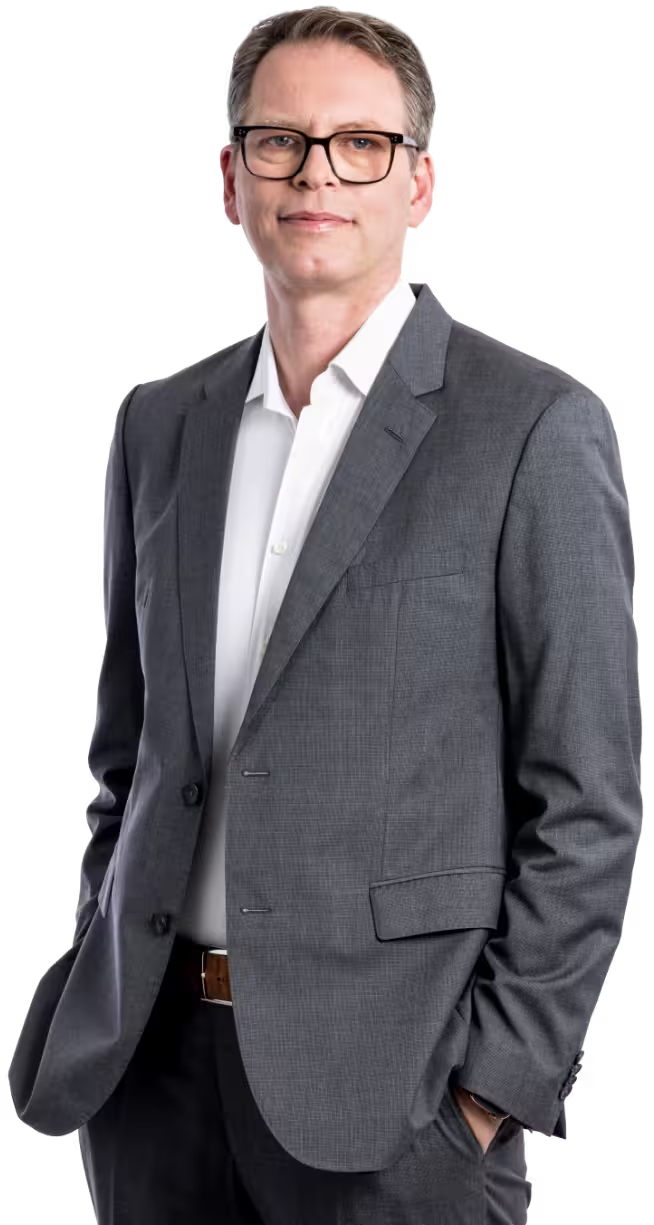
Interview/Statement Stephan Esch


”We are the ,David‘ of the industry…”
Stephan Esch was one of freenet’s founding members from the very beginning. As the CTO, he takes a personal look at the developments and challenges of the company’s first 25 years, recognising its strengths, managers and perspectives.
Stephan Esch …
… about the intensive start-up years
They were characterised by an insane spirit of optimism and the incredible intensity and productivity of our work. We were a fairly small team of around 40 employees. Our normal working day rarely ended before 8 p.m., followed by our daily management meetings. There we discussed developments, new ideas, products and projects – often late into the night. And the next morning, we continued with our daily business.
A manageable team in half a rented floor at Deelbögenkamp in Hamburg naturally allows for very quick decisions – for our freenet today with many more departments, sites, subsidiaries and thousands of employees, the conditions are of course completely different. Especially as we initially took on many functions in one person and thus reduced the amount of coordination between us.
Our growth was correspondingly strong in the first few years – with initially small company acquisitions, new offers such as DSL Internet access and later the takeover of the fixed network business from the parent company mobilcom. freenet was already the second largest online service behind Deutsche Telekom in 2002; the “David” freenet had already overtaken the Goliath AOL.
… about the big M&As until 2010 …
We were well utilised with our organic growth; in the second half of the noughties, however, we were faced with two nerve-wracking external issues.
First of all, there were mobilcom’s problems with its partner France Telecom, which threatened its very existence and failed to meet its billion-euro financing obligations from the acquisition of the UMTS licences. As a subsidiary of the faltering mobilcom, we were involved. This led to a de facto “reverse takeover” in 2007 – i.e. the takeover of the parent company by the subsidiary. As freenet Executive Board members, we also took over the mobilcom management.
The second major challenge in 2008 was the impending takeover of freenet by United Internet together with Drillisch. We developed the defence strategy of taking over the larger service provider debitel instead. This made freenet several billion euros more expensive and therefore impossible for the threatened takeover by United Internet and Drillisch.
… and their consequences for the CTO
The three companies – freenet, mobilcom and debitel – each had their own IT, which now had to be merged. In addition, debitel had bought its competitor Talkline the year before and was therefore involved in a complex IT migration – the so-called “Rainbow Project”. Creating a new, functioning IT system for these three providers was a project that was unprecedented on this scale – and definitely kept me from getting bored for over two years.
… about cultural consolidation,
The challenge for Christoph Vilanek was of a completely different nature, but no less great: in 2009, he took over as
CEO of a company whose new core business now consisted of three Mobile Communications providers that had previously been in fierce, not to say bitter, competition. And their employees were generally not very enthusiastic about the takeovers. We had to form a powerful unit from these very heterogeneous companies at different sites in Germany, develop a common strategy and form of cooperation – create a new sense of unity. It was a long, arduous journey, because nobody likes to give up their familiar identities, routines and work processes.
How was that achieved? Christoph approached the employees with a great deal of empathy and listened to them to get a feel for their mood, expectations and fears. He managed to weld together the best of the “three worlds” to create a new company. To this day I experience direct dialogue with employees, openness and transparency as essential components of our corporate culture.
Another key point for the “we-feeling” that emerged at the time was our “Expedition Future”: freenet brought all employees from across the country together for a weekend in Berlin to celebrate a huge party at the former Tempelhof Airport.
… skilful portfolio management
Due to the merger of mobilcom and debitel, we had accumulated considerable debt; as a result, skilful portfolio management was required to get back into safe financial waters: We successively sold subsidiaries and shareholdings that were not essential to the core business; we made financial investments that brought us a three-digit million profit when we later resold them; and we acquired sales-oriented companies and shareholdings that strengthened our competitive position as a digital lifestyle provider. All of this contributed to freenet’s very solid balance sheet today.
… and new growth segments since 2010
Another important achievement of Christoph Vilanek is that he has identified an additional, very high-growth pillar for freenet – the TV and Media segment. Our traditional core business of Mobile Communications is crisis-resistant and profitable, but the market has been saturated for many years. By contrast, the prospects offered by the buy of Exaring as the operator of waipu.tv are forward-looking – both for our company and for the financial markets: this makes us the fastest-growing IPTV provider in Germany.
… about the unchanged DNA of freenet
Today, we are very well positioned in every respect: We reliably deliver very good figures, are strongly committed to our employees and sites. Today, we are a mature company with appropriate structures. And yet, in essence, we are still the same freenet as we were 25 years ago – certainly grown up, but still the industry’s “David”. We operate in small units at our nine locations – with a great deal of room for manoeuvre and responsibility for each individual employee. The best example and always a great pleasure for me personally is “freenet.de” – our portal business the very beginning: integrated into the large Group, it still functions very well and smoothly with around 70 people, just as it did 25 years ago.
We are and will remain “the small ones” and have much less monetary capacity and resources than our large competitors. Nevertheless, we must remain in attack mode and thus maintain our typical advantages as a medium-sized company. Once again, we will also fulfil our communicated ambitions with regard to increasing profitability in the coming years.

25 Years of freenet
Our long-standing CTO Stephan Esch was one of freenet’s founding members from the very beginning. In a personal retrospective, he describes the developments and challenges of the company’s first 25 years.
These are the three most important insights from this time:
Even after 25 very successful years of freenet, we remain the David among the Goliaths in our industry.
Our DNA remains the same – we operate in small units with great room for manoeuvre and responsibility for each individual employee.
The development of the TV and Media segment as a growth driver alongside the traditional mobile communications business makes us fit for the future.

Interview/Statement Stephan Esch


”We are the ,David‘ of the industry…”
Stephan Esch was one of freenet’s founding members from the very beginning. As the CTO, he takes a personal look at the developments and challenges of the company’s first 25 years, recognising its strengths, managers and perspectives.
Stephan Esch …
… about the intensive start-up years
They were characterised by an insane spirit of optimism and the incredible intensity and productivity of our work. We were a fairly small team of around 40 employees. Our normal working day rarely ended before 8 p.m., followed by our daily management meetings. There we discussed developments, new ideas, products and projects – often late into the night. And the next morning, we continued with our daily business.
A manageable team in half a rented floor at Deelbögenkamp in Hamburg naturally allows for very quick decisions – for our freenet today with many more departments, sites, subsidiaries and thousands of employees, the conditions are of course completely different. Especially as we initially took on many functions in one person and thus reduced the amount of coordination between us.
Our growth was correspondingly strong in the first few years - with initially small company acquisitions, new offers such as DSL Internet access and later the takeover of the fixed network business from the parent company mobilcom. freenet was already the second largest online service behind Deutsche Telekom in 2002; the “David” freenet had already overtaken the Goliath AOL.
… about the big M&As until 2010 …
We were well utilised with our organic growth; in the second half of the noughties, however, we were faced with two nerve-wracking external issues.
First of all, there were mobilcom’s problems with its partner France Telecom, which threatened its very existence and failed to meet its billion-euro financing obligations from the acquisition of the UMTS licences. As a subsidiary of the faltering mobilcom, we were involved. This led to a de facto “reverse takeover” in 2007 – i.e. the takeover of the parent company by the subsidiary. As freenet Executive Board members, we also took over the mobilcom management.
The second major challenge in 2008 was the impending takeover of freenet by United Internet together with Drillisch. We developed the defence strategy of taking over the larger service provider debitel instead. This made freenet several billion euros more expensive and therefore impossible for the threatened takeover by United Internet and Drillisch.
… and their consequences for the CTO
The three companies – freenet, mobilcom and debitel – each had their own IT, which now had to be merged. In addition, debitel had bought its competitor Talkline the year before and was therefore involved in a complex IT migration – the so-called “Rainbow Project”. Creating a new, functioning IT system for these three providers was a project that was unprecedented on this scale – and definitely kept me from getting bored for over two years.
… about cultural consolidation,
The challenge for Christoph Vilanek was of a completely different nature, but no less great: in 2009, he took over as
CEO of a company whose new core business now consisted of three Mobile Communications providers that had previously been in fierce, not to say bitter, competition. And their employees were generally not very enthusiastic about the takeovers. We had to form a powerful unit from these very heterogeneous companies at different sites in Germany, develop a common strategy and form of cooperation – create a new sense of unity. It was a long, arduous journey, because nobody likes to give up their familiar identities, routines and work processes.
How was that achieved? Christoph approached the employees with a great deal of empathy and listened to them to get a feel for their mood, expectations and fears. He managed to weld together the best of the “three worlds” to create a new company. To this day I experience direct dialogue with employees, openness and transparency as essential components of our corporate culture.
Another key point for the “we-feeling” that emerged at the time was our “Expedition Future”: freenet brought all employees from across the country together for a weekend in Berlin to celebrate a huge party at the former Tempelhof Airport.
… skilful portfolio management
Due to the merger of mobilcom and debitel, we had accumulated considerable debt; as a result, skilful portfolio management was required to get back into safe financial waters: We successively sold subsidiaries and shareholdings that were not essential to the core business; we made financial investments that brought us a three-digit million profit when we later resold them; and we acquired sales-oriented companies and shareholdings that strengthened our competitive position as a digital lifestyle provider. All of this contributed to freenet’s very solid balance sheet today.
… and new growth segments since 2010
Another important achievement of Christoph Vilanek is that he has identified an additional, very high-growth pillar for freenet – the TV and Media segment. Our traditional core business of Mobile Communications is crisis-resistant and profitable, but the market has been saturated for many years. By contrast, the prospects offered by the buy of Exaring as the operator of waipu.tv are forward-looking – both for our company and for the financial markets: this makes us the fastest-growing IPTV provider in Germany.
… about the unchanged DNA of freenet
Today, we are very well positioned in every respect: We reliably deliver very good figures, are strongly committed to our employees and sites. Today, we are a mature company with appropriate structures. And yet, in essence, we are still the same freenet as we were 25 years ago – certainly grown up, but still the industry’s “David”– We operate in small units at our nine locations – with a great deal of room for manoeuvre and responsibility for each individual employee. The best example and always a great pleasure for me personally is “freenet.de” – our portal business the very beginning: integrated into the large Group, it still functions very well and smoothly with around 70 people, just as it did 25 years ago.
We are and will remain “the small ones” and have much less monetary capacity and resources than our large competitors. Nevertheless, we must remain in attack mode and thus maintain our typical advantages as a medium-sized company. Once again, we will also fulfil our communicated ambitions with regard to increasing profitability in the coming years.


2028 Financial Ambition
2028 Financial Ambition
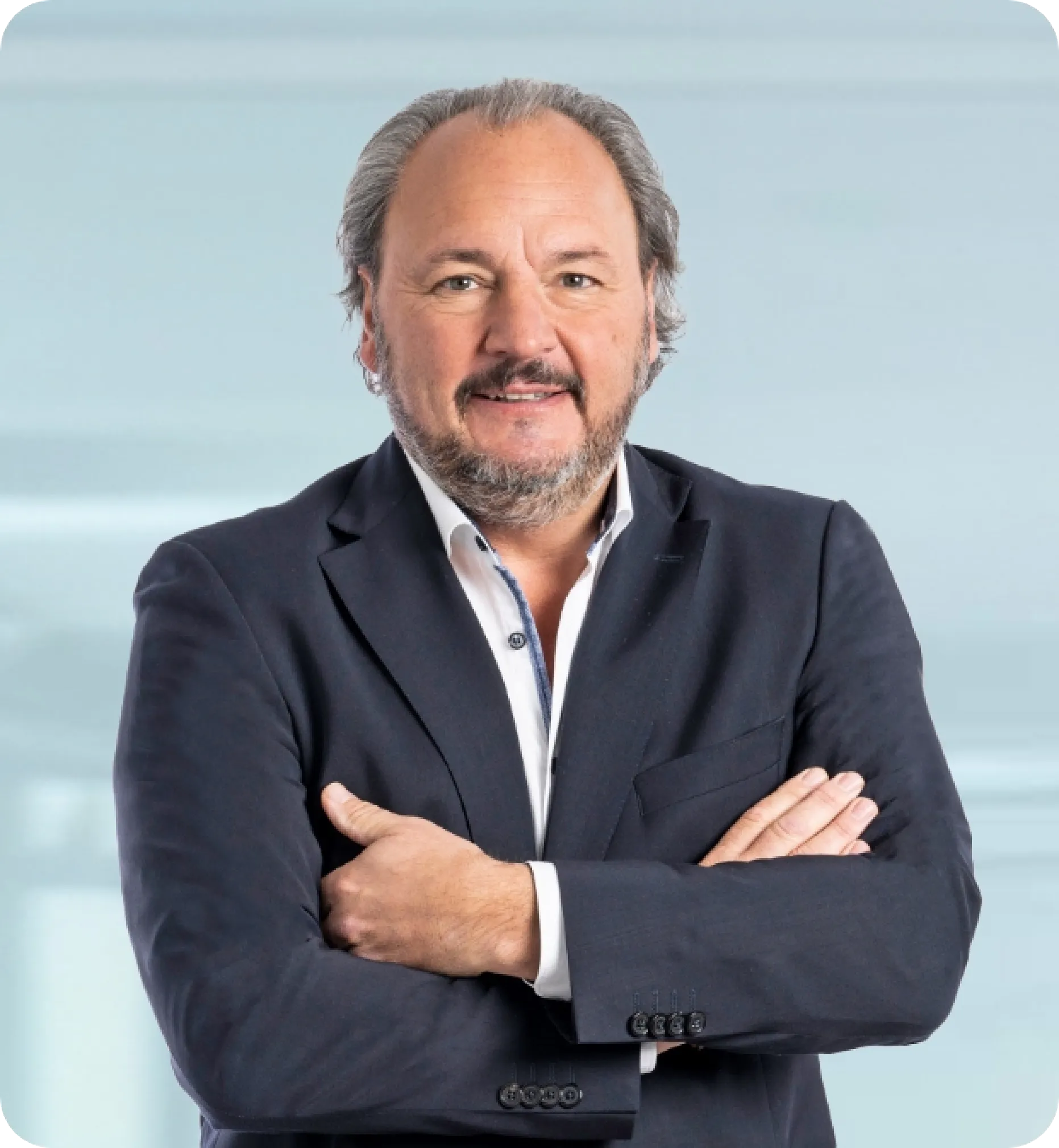
Our 2024 financial year
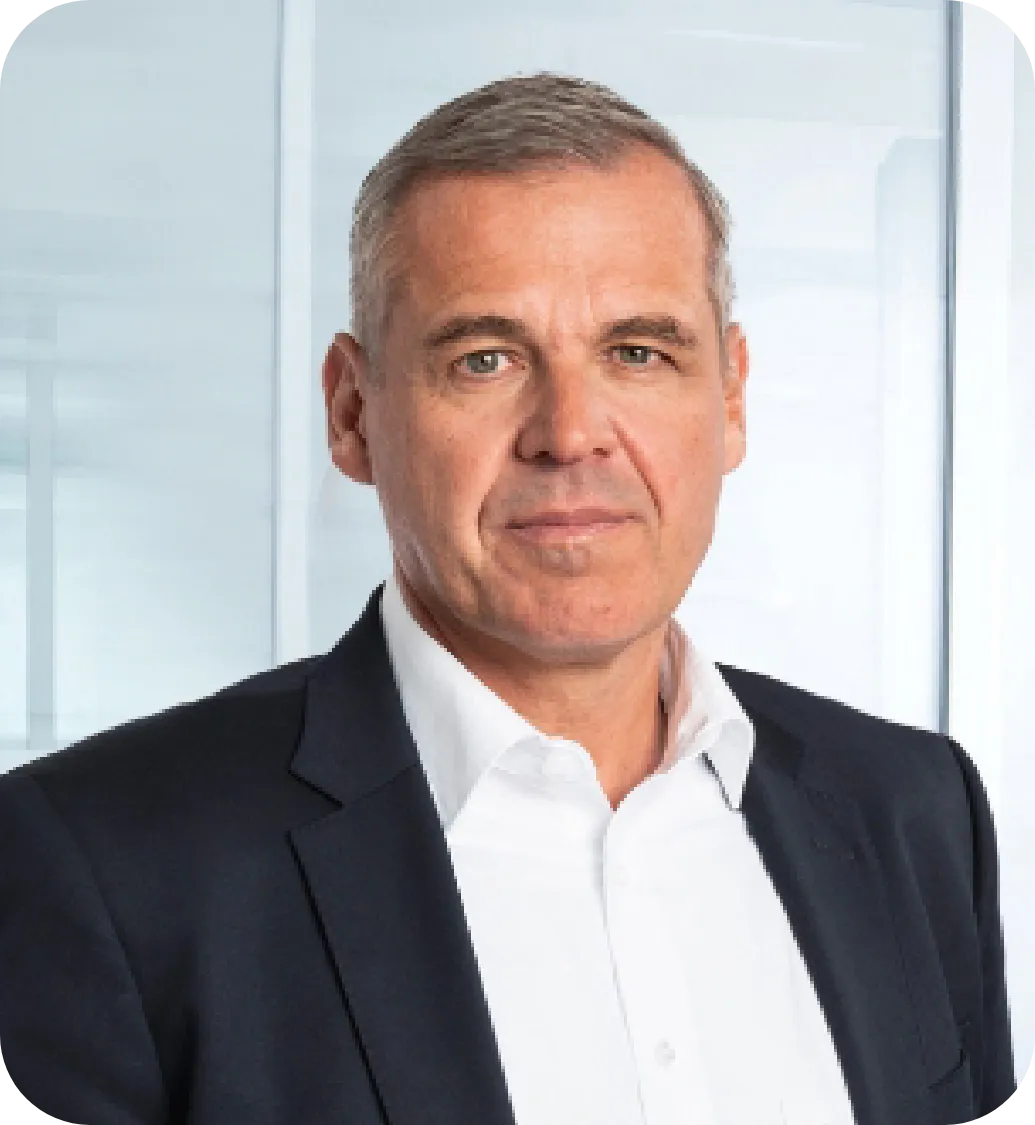
CFO


Ingo Arnold (CFO)
“The 2024 financial year was a complete success from a financial perspective. We were able to achieve the highest results in our history for our financial performance indicators EBITDA and free cash flow. In the 2024 financial year, consolidated revenues totalled EUR 2,477.7 million, an increase of 3.9% compared to the previous year. This was driven in particular by the IPTV business of waipu.tv. EBITDA, which includes a special effect from the one-off sale of IP addresses (approx. EUR 18 million), totalled EUR 521.5 million in the 2024 financial year, up 3.5% on the previous year. Furthermore, the free cash flow, also influenced by the sale of the IP addresses, increased by 5.7% and amounts to EUR 292.3 million.
Furthermore, at the 2025 Annual General Meeting, we will propose the highest dividend per share in freenet’s history based on this free cash flow of EUR 1.97, of which EUR 0.12 is attributable to a one-off effect from the sale of IP addresses. This successful business performance once again confirms our stable business model combined with a high return for our investors.“


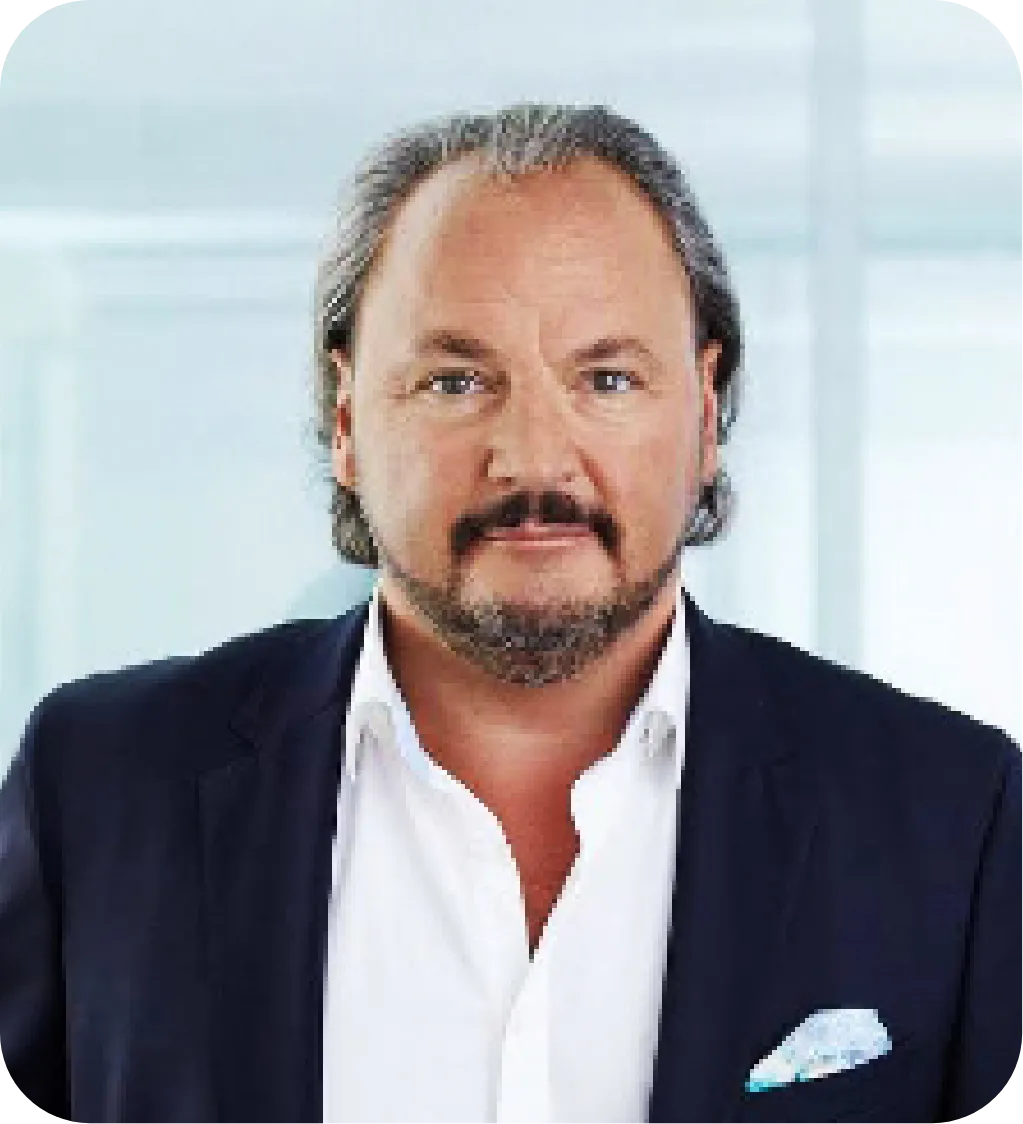
CEO


Christoph Vilanek (CEO)
“In the 2024 financial year, we continued to consistently pursue our strategic course:
- Consolidating our position in the mobile market
- Significant growth in the IPTV business (waipu.tv)
This course is paying off: we have posted record EBITDA and free cash flow and we are distributing a record dividend.
We took an important step towards further consolidating our position in the mobile market by concluding long-term contracts with network operators. These contracts give us multi-year planning security with attractive conditions. The contracts enable us to offer our customers even more flexibility and choice. True to our vision: “freenet – always the right choice”.
The IPTV market in Germany has been characterised by sustainable and long-term growth for several years – also due to the abolition of the ancillary cost law (“Nebenkostenprivileg”) in 2024. waipu.tv also benefited from this structural change as the fastest-growing IPTV provider. In the 2024 financial year, we reached another milestone with almost 2 million subscribers. This was also reflected in the growth in revenues.“


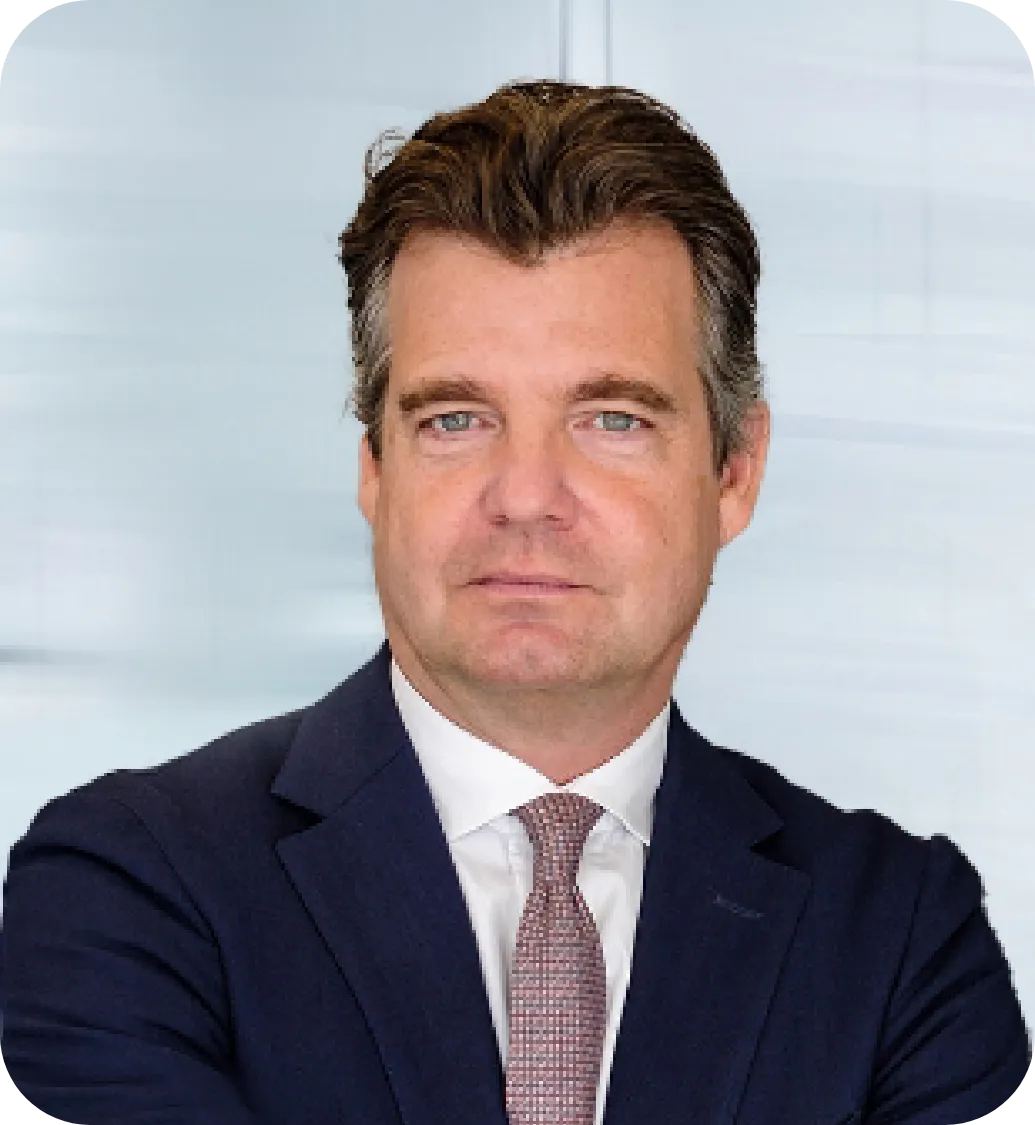
Chairman of the Supervisory Board


Marc Tüngler (Chairman of the Supervisory Board)
“As CEO, Christoph Vilanek has been a key figure in the successful development and resilient positioning of freenet since 2009. During his 16 years in office, he made the company what it is today: an established Mobile Communications company and an emerging player in the TV and Media segment. Following the announcement last year that he would not be available for a further term of office at the end of his contract, the Supervisory Board began the search for a successor at an early stage.
We are pleased to announce at this point that we have successfully completed the selection process and have been able to recruit Robin Harries as the new CEO for freenet. Robin Harries will use his diverse industry-specific and strategic experience to further develop the company and make it even more future- and profit-orientated. In addition to his excellent knowledge of the mobile market, he has extensive expertise in the areas of marketing, sales and digital transformation. Robin Harries will take the helm from 1 August 2025 at the latest, as they say in Hamburg.”

Our 2024 financial year
The new Sustainability Report
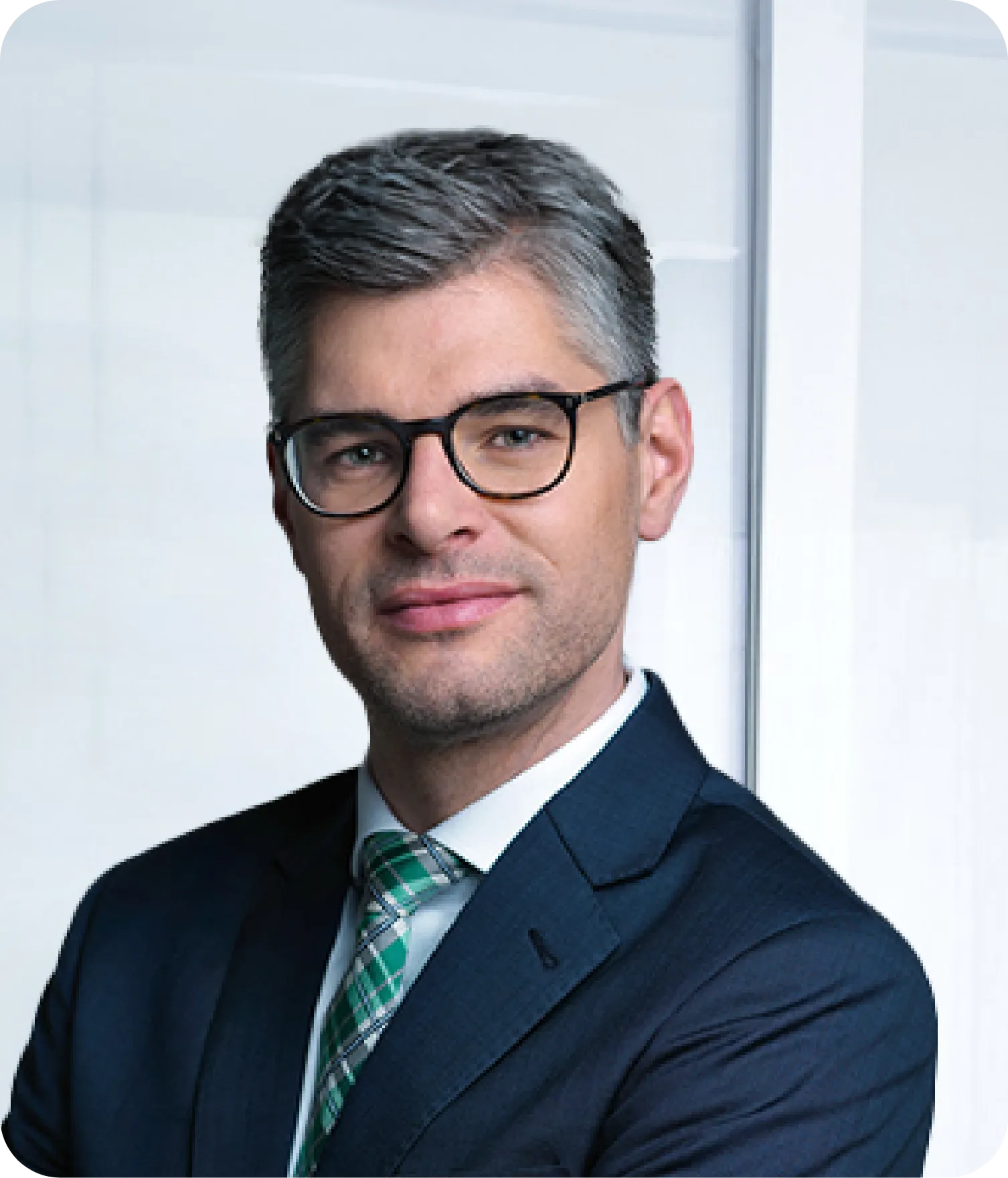
Head of Investor Relations & ESG Reporting
Guidance
2025 financial year
Downloads and Links
2024
Annual report
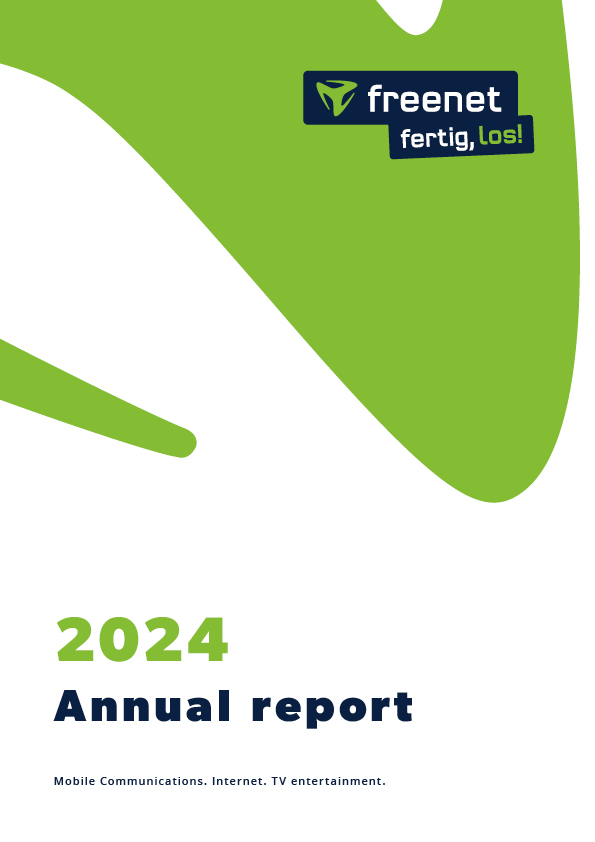

2024 Non-financial
group statement
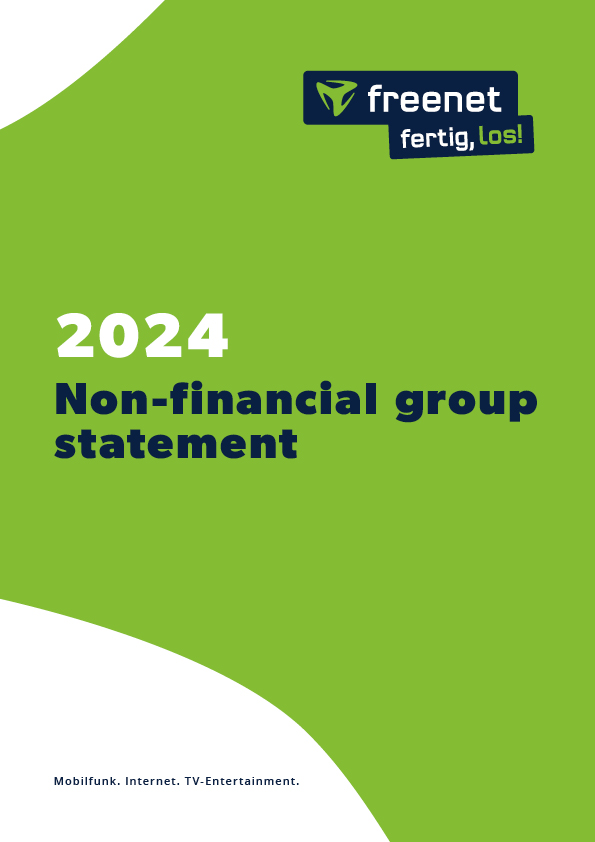


Corporate News

Webcast

2024 Consolidated financial statements

Presentation
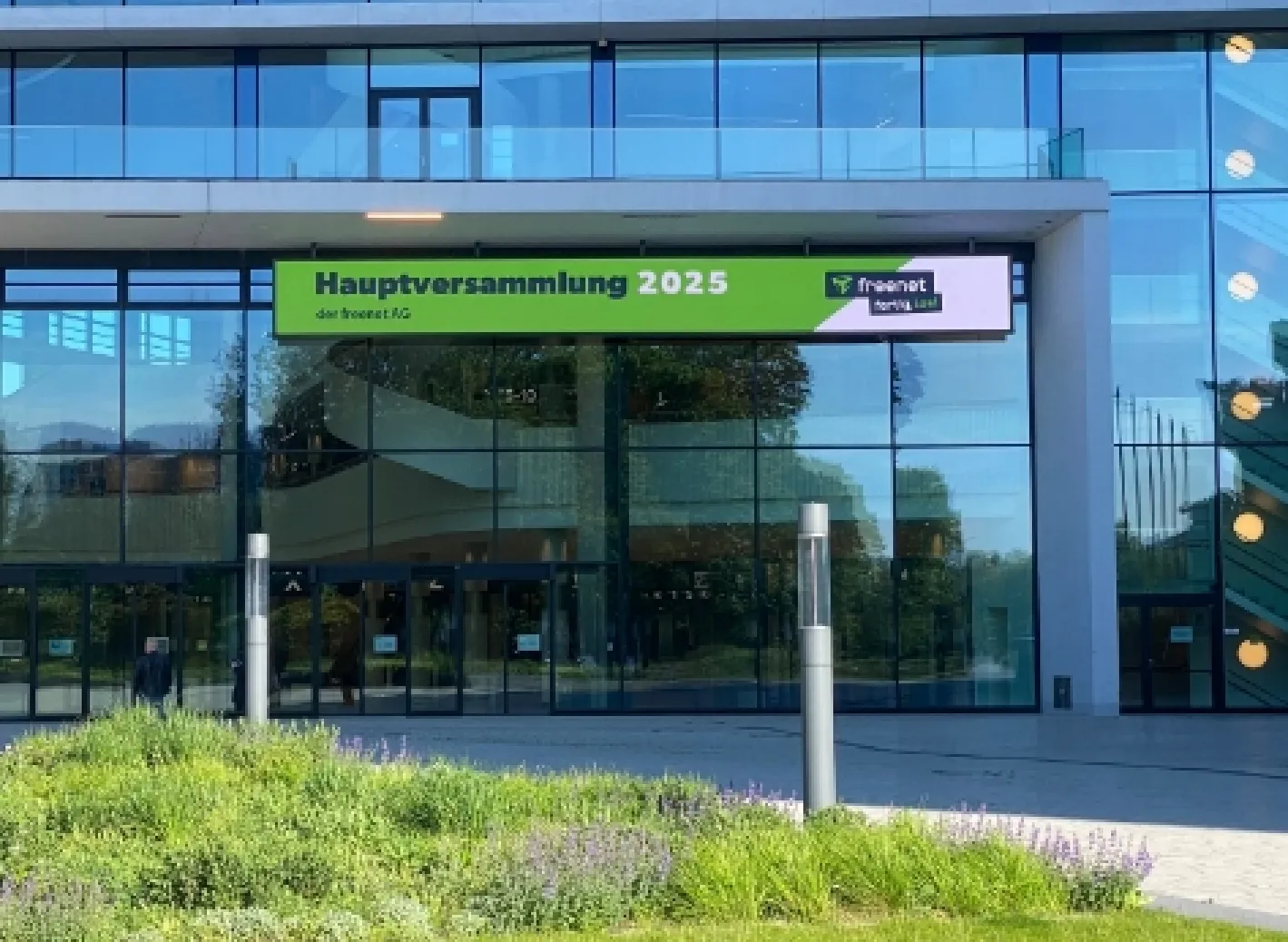
2025 Annual General Meeting

The 2025 Annual General Meeting of freenet AG took place on 13 May 2025 in Hamburg (Congress Center Hamburg).
